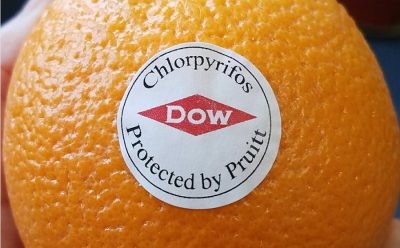With somewhat more than a whiff of scandal, Scott Pruitt, the Donald Trump appointee as head of the US Environmental Protection, has finally been forced to resign. A politician described by the Washington Post as ‘easily the most corrupt senior official in the federal government’1, Pruitt managed to hold on to power against all the odds but his unusual take on personal ethics and the use of public money seems now to have finished him off. According to the Guardian:
‘After months of scandals, investigations and public protest, Scott Pruitt has finally resigned as head of the Environmental Protection Agency. During his relatively short time in the role, he was accused of a litany of corrupt practices, illegal activities and misuse of public funds, any one of which would have ended the career of an ordinary politician.’2
Among the earliest, most significant acts of Pruitt’s tenure was an astonishing decision to overrule years of research, by the EPA’s own scientists which culminated in a proposal to ban the pesticide chlorpyrifos. In a letter to the Inspector General, from the United States Senate, Sen. Elizabeth Warren ad Rep, Frank Pallone state that:
“Administrator Pruitt was confirmed on February17, 2017. In one of his first formal actions as head of the EPA he disregarded the agency’s ‘vast scientific Record’ that chlorpyrifos poses a risk to consumers and reversed the EPA’s decision -based on more-than-a-decade of accumulated scientific work and evidence- to ban the product.”3
They go on to ask a number of very cutting questions, including one linking Pruitt with Dow Chemical and/ or other pesticide industry trade groups:
How did Mr. Pruitt reach the decision he announced on March 29, 2017? What was the timeline leading up to this decision? With whom did he communicate within EPA, the White House, or elsewhere in the administration? With which outside entities did he communicate? Specifically, did Mr. Pruitt have any communication with staff or representatives of Dow Chemical or any pesticide industry trade groups including CropLife America?”
Among Trump’s other early appointees was erstwhile Dow Chemical CEO, Andrew Liveris, as head of his newly created ‘American Manufacturing Council’. Lawyers representing Dow and two other companies manufacturing the pesticides sent letters to the EPA, the Department of Commerce, and the Fish and Wildlife Service, asking them to ‘set aside’ the government studies. Dow claims that the studies were ‘fundamentally flawed’ and hired a bunch of scientists of its own who, unsurprisingly perhaps, came up with a set of different results.
Enquiry Requested on Reversal of Proposed Dow Pesticide Ban
Dow Chemical Asks US Government Agencies to Ignore US Government Scientists’ Pesticide Study
‘Dow Chemical Wants Farmers to Keep Using a Pesticide Linked to Autism and ADHD.’
Dredging The Swamp with Donald Trump & Dow Chemical
1. Washington Post, 04 May, 2018: https://www.washingtonpost.com/blogs/plum-line/wp/2018/05/04/is-scott-pruitt-the-most-corrupt-member-of-the-trump-administration/?ncid=newsltushpmgnews__TheMorningEmail__070618&noredirect=on&utm_term=.d2505d477921
2. The Guardian 05 May, 2018: https://www.theguardian.com/us-news/2018/jul/05/scott-pruitt-what-it-took-to-get-him-to-resign-from-his-epa-job
3. Letter from the United States Senate, Sen. Elizabeth Warren ad Rep, Frank Pallone, 27 April, 2017: https://www.warren.senate.gov/files/documents/2017_04_27_Letter_to_Pruitt_EPA.pdf



